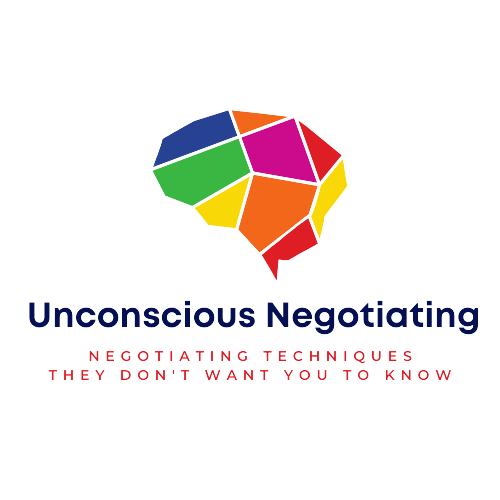Negotiating is an art, a skill that can prove invaluable in all aspects of life. It’s often the determining factor that stands between a successful deal and a missed opportunity. In professional settings, the ability to negotiate effectively can shape careers and drive business success. But what’s the best way to learn this complex skillset?
Some may argue that negotiation skills are innate, others would insist they can be taught and polished over time. Nonetheless, mastering negotiation skills involves a blend of learning fundamentals from seasoned professionals, immersing oneself in real world scenarios, and intentionally practicing one’s craft.
In this post, we delve into tested and tried methods designed to sharpen your negotiation skills. Whether you’re a seasoned expert or a beginner at the bargaining table, these tips will aid in honing your negotiating prowess.
Fampering Your Mindset before Learning Negotiation
In beginning your negotiation journey, the first step is to reframe your mindset. It’s not about conflict; instead, think of it as a process of mutual benefit where both parties reach a satisfying endpoint.
Listen with an intent to understand, not only to counter. Recognize that negotiation is not about winning, but more about exploring possibilities and finding middle ground.
Shift your perspective to see negotiation as a transformative experience which hones planning, problem-solving, and communication skills. Meditate on the fact that negotiation has the dual ability to improve business relations, and personal interpersonal interactions.
Cultivating this mental frame can enhance your negotiating capabilities and overall experience. Don’t forget, patience and perseverance are key.
Researching Effective Negotiation Techniques
In order to refine your negotiation skills, it’s crucial to learn from those who have mastered the art. Researching effective negotiation techniques is an excellent starting point.
You can begin by delving into works of renowned negotiators like William Ury or Chris Voss. Their books give insightful and practical advice. Online platforms also have a plethora of resources. Websites like Medium, Forbes, and Harvard Business Review regularly publish articles on negotiating techniques.
Podcasts could be another rich resource for learning as some feature industry experts sharing their experiences and tips.
Remember, the key takeaway from your research should be understanding the core principles of negotiation – establishing value, exploring interests, creating options, and managing the process.
The idea is to gather as much knowledge as possible and then adapt these learnings as per your industry and personal style.
Participating in Negotiation Workshops and Seminars
Participating in negotiation workshops and seminars is a tremendously beneficial tool for mastering the art of negotiation.
These forums often integrate interactive modules and real-world scenarios, providing a hands-on experience that boosts your negotiation confidence. Expert facilitators at these workshops aim to strengthen your persuasive communication and problem-solving skills, both key competencies in negotiations.
Moreover, these workshops bring together a diverse group of participants. This diversity exposes you to a range of negotiating styles and tactics, fostering adaptability and ensuring you are poised for any negotiation scenario.
The in-person or online seminars often delve into theoretical concepts, laying a solid foundation for your negotiation strategies. By regularly attending these workshops and seminars, you immerse yourself in negotiations tips and skills, enhancing your efficiency in real-world experiences.
In short, these workshops and seminars are a robust platform for practical learning and networking, pushing you to negotiate better and smarter.
Practicing Negotiation in Everyday Scenarios
Being a strong negotiator isn’t a talent you born with— it’s a skill that can be developed. But how?
Practice. More specifically, practice negotiation in everyday scenarios.
For instance, do you need to convince your spouse to splurge on a more expensive vacation? That’s negotiation in action. Or maybe you’re bargaining with a car dealer for a better deal. That’s negotiating too. By integrating negotiation tactics into your day-to-day interactions, you reinforce them and make them second nature.
Then try shifting your perspective. Often, we see negotiation as a battle to be won. Try viewing it, instead, as a discourse where both parties strive for the best outcome. It’s all about framing negotiations in a positive light.
Negotiating isn’t confined to the boardroom. By practicing in everyday settings, you can quickly master this essential skill.
Learning from Experts: Mentorship in Negotiation
One of the best avenues for honing your negotiation skills is through the mentorship of seasoned negotiators.
Finance mogul Warren Buffet swears by this learning pathway, bearing testament that his negotiation prowess can be credited to his mentor Benjamin Graham.
Mentorship is unrivaled in its capacity to provide practical, firsthand insight into the fine art of negotiation. This renders learning both effective and expedient.
Guidance from seasoned negotiators will expose you to diverse strategies, negotiation styles and multifaceted scenarios. This invaluable interactive experience can help to efficiently navigate the challenging terrain of business negotiate and deal-making.
Besides, imbibing the wisdom of armed negotiators, mentorship also provides a safe space for making and learning from mistakes. The constructive feedback obtained from each mock negotiation session plays an incremental role in refining your negotiation skills.
Embrace mentorship to expedience your journey to becoming a highly skilled negotiator. It’s proven to be a worthwhile investment.
Reading Books about Successful Negotiators
Starting your journey in negotiation can be a daunting task. But fear not, one of the best ways to pick up this essential skill is by reading books.
Immersing yourself in the tactics of successful negotiators can give you a fresh perspective. Understanding their thought process, strategies, and tactics can equip you with an invaluable wealth of knowledge.
Books like “Getting to Yes” by Roger Fisher and William Ury offer real-life narratives of successful negotiation and provide practical advice that you can apply in various scenarios.
Remember, negotiation is more art than science, and understanding the perspectives of those who’ve mastered this art can be incredibly beneficial. So, make it a point to pick up a book and delve into the minds of the experts.
Simulating Negotiations: Role-play Exercises
Discovering your own negotiating style and becoming comfortable with it is a crucial part of the learning process. Role-play exercises are a fantastic method to simulate real-world negotiating situations.
In these exercises, you are assigned a role with a specific objective and negotiating stance. You then brainstorms strategies and tactics to help you achieve your goal. Afterwards, you’ll have a reciprocal negotiation with a peer who also has their own objective.
Role-playing encourages both experimentation and reflective thinking. The scenario-based practice helps develop practical skills while the context-specific parameters prepare you for a multitude of real-world situations.
Feedback post-exercise is invaluable, as it allows you to identify strengths and areas of improvement. Therefore, don’t shy away from engaging in numerous role-play negotiations. The practice it provides is priceless.
Developing Emotional Intelligence for Negotiation
Understanding and managing emotions play a crucial role in effective negotiation. Developing emotional intelligence allows you to perceive, understand, and manage your emotions during negotiations. This prevents emotional hijacking, where strong negative emotions derail the negotiation process.
By reading and interpreting emotional signals of other parties, you’re also able to tactically navigate conversations and anticipate outcomes. This can lead to mutually beneficial outcomes – a key aim in negotiations.
It’s beneficial to familiarize yourself with the pillars of emotional intelligence: self-awareness, self-regulation, motivation, empathy, and social skills.
Practicing mindfulness helps in cultivating self-awareness and self-regulation. Engage in exercises that build empathy, such as active listening.
By elevating your emotional intelligence, you can negotiate more effectively and professionally. The result is win-win outcomes that respect and satisfy all parties involved.





0 Comments